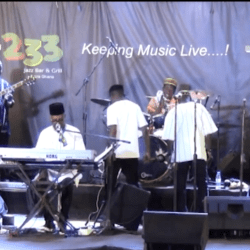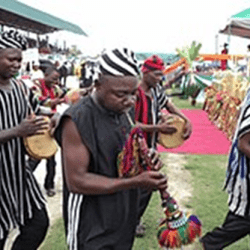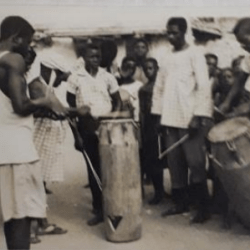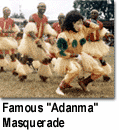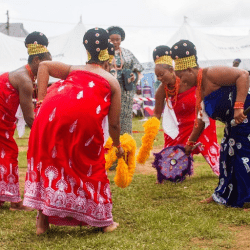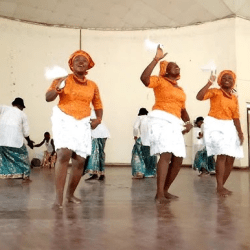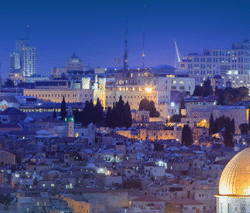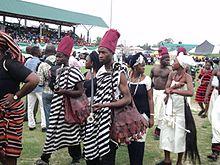The Tiv people of Benue State, Nigeria, have a rich musical heritage that reflects their culture, history, and daily life. Their traditional music plays a crucial role in storytelling, celebrations, rituals, and social functions. This article explores the diverse aspects of Tiv music, including its instruments, genres, cultural significance, and modern influences.
1. Nature of Tiv Music
Tiv music is a deeply ingrained part of the cultural identity of the Tiv people of Benue State, Nigeria. It is used in storytelling, religious ceremonies, social events, and daily activities. The music is characterized by the use of traditional instruments, call-and-response singing, and vibrant dance movements.
2. Historical Background of Tiv Music
The Tiv people trace their origins to the Bantu migration, and their music has evolved over time. Early Tiv music was primarily used for communication, rituals, and entertainment. It has since incorporated elements from neighboring ethnic groups and modern influences.
3. Cultural Significance of Music in Tiv Society
Music is central to Tiv social life. It is performed at festivals, marriages, funerals, and naming ceremonies. It also serves as a means of oral history, passing down stories and values from one generation to another.
4. Traditional Tiv Musical Instruments
Tiv music features various indigenous instruments:
- Percussion Instruments: Ilyu (drums), Gbande (wooden clappers)
- String Instruments: Kakaki (long trumpet), Akya (local guitar)
- Wind Instruments: Al-Gaita (flute), Kwase (horn)
5. Popular Tiv Music Genres
- Imo
- Kwagh-hir: A folk opera that combines music, drama, and dance.
- Swange: A popular music and dance style known for its fast-paced rhythm.
6. Swange Music: The Heartbeat of Tiv Culture
Swange music is one of the most recognizable Tiv music styles. It features a blend of drumming, melodic instruments, and energetic dance movements. This music has been modernized by contemporary Tiv musicians who incorporate Afrobeat and Highlife influences.
7. Dance and Performance in Tiv Music
Tiv music is often accompanied by dance, which is an essential part of performance. Traditional dances include:
- Swange Dance: A rhythmic and energetic dance style.
- Kwagh-hir Dance: A storytelling dance with dramatic elements.
8. Influence of Religion on Tiv Music
While traditional Tiv music was largely spiritual, Christianity and Islam have introduced new musical styles. Gospel music among the Tiv blends traditional rhythms with contemporary Christian worship.

9. Tiv Music in Traditional Storytelling
Music plays a major role in Tiv folklore, helping to preserve legends, proverbs, and cultural values. Songs are used to pass down history and teach moral lessons.
10. Modernization and Evolution of Tiv Music
With the rise of technology, Tiv music has evolved to include digital instruments and recording techniques. Many young Tiv artists are blending traditional sounds with hip-hop, Afrobeat, and reggae.
11. Prominent Tiv Musicians and Performers
Several Tiv musicians have gained national and international recognition. Notable artists include:
- Obadia
- Tarker Golozo
- Eryum Zuzu
- Gabon Akuhe
- Rapizo (Afrobeat & Tiv hip-hop fusion)
12. Role of Music in Tiv Festivals and Rituals
Music is crucial in Tiv cultural events such as:
- Marriage ceremonies: Special songs are performed to bless the couple.
- Burial rites: Mourning songs help express grief and celebrate the deceased.
- Harvest festivals: Farmers sing to thank the gods for a bountiful harvest.
13. Challenges Facing Traditional Tiv Music
- Declining interest among the youth.
- Influence of Western music.
- Loss of traditional musicians and knowledge.
14. Efforts to Preserve and Promote Tiv Music
Efforts are being made to preserve Tiv music through:
- Cultural festivals.
- Inclusion in school curricula.
- Government and NGO support.

